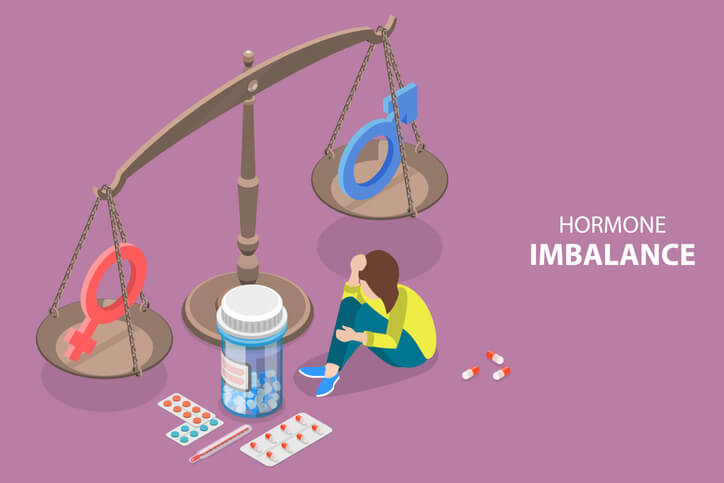Integrative Gynecology
Bioidentical Hormone Replacement
Bioidentical hormones are unique in that they are identical in molecular and structural function to the hormones produced in the human body. As aging occurs or when the body becomes worn down with stress, the cells of the body are no longer able to produce adequate amounts of vital hormones. Other factors such as excessive smoking or alcohol intake, a poor diet, and lack of exercise can also weigh on the body’s ability to produce important hormones.
Bioidentical Hormone Replacement (BHRT) is typically used to treat the progressive loss of hormones that comes with age. In women this is termed peri-menopause and menopause and includes the loss of estrogen, progesterone, and testosterone. Menopause represents a constellation of symptoms: hot flashes, mood swings, night sweats, loss of libido and sexual desire, vaginal dryness and atrophy that can lead to painful intercourse, urinary stress incontinence, unwanted hair growth and weight gain, depression, cognitive decline, insomnia, and osteoporosis.
In men, the loss of hormones with age is termed andropause or male menopause. This hormonal loss is primarily testosterone and is commonly referred to in the media as Low-T. Declining testosterone levels in men can lead to loss of libido, erectile dysfunction, moodiness and depression, loss of cognitive ability, loss of stamina, muscle mass and strength, and fatigue. BHRT represents a ‘natural and organic’ means of restoring, optimizing, and preventing further hormonal decline. Since BHRT is produced from plant-based organic compounds that are molecularly similar to one’s own hormones, there exists a greater safety profile and less adverse side-effects than traditional HRT.
Conditions Treated with Bioidentical Hormones
Jeffrey M. Schwartz, M.D. treats a number of conditions that are associated with hormonal imbalances. Bioidentical hormone replacement therapy can help treat several conditions that are the result of hormonal decline.
Some of these conditions include:
- Hormonal Imbalance - Menopause, Andropause, and Couplepause
- Night sweats
- Hot flashes
- Chronic fatigue
- Low libido
- Mood swings
- Urinary issues
- Adrenal Fatigue
- Thyroid Disorders
BHRT modalities include: pellets, topicals, pills and injections. Testosterone Pellet Therapy can dramatically improve your QOL - Quality Of Life. These benefits include: Bone Health, Anemia, Cognitive Decline, Mood & Depression, Sexual Function, Breast Cancer, Sleep Disorders, Chronic Fatigue, Metabolic Syndrome including High Blood Pressure, High Cholesterol, Obesity and Diabetes.
Hormones and Hormonal Deficiencies
There are a number of hormones involved in the body's hormonal network, which play a role in carrying out important functions such as sleep cycles, sexual functions, reproduction, hair growth, skin elasticity, skin repair, energy and heat reduction, and metabolism. When any one of these hormones becomes deficient, the functions that they help to regulate may also decline.
Some of the important hormones include:
- Estrogen
- Progesterone
- Testosterone
- DHEA
- Pregnenolone
- Cortisol
- Thyroid hormone



